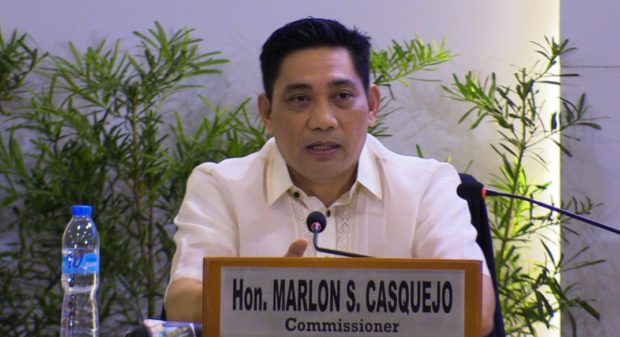
Comelec Commissioner Marlon Casquejo. INQUIRER.net FILE PHOTO / CATHY MIRANDA
MANILA, Philippines — Commission on Elections (Comelec) Commissioner Marlon Casquejo on Thursday apologized for the absence of observers in the printing of ballots for the May 9 elections, saying the poll body will allow random ballot inspection in a bid to “rectify” the situation.
During a hearing of the Senate electoral reforms committee, Senate President Vicente Sotto III asked Comelec about “disallowing observers” in the printing of the ballots.
“This is very crucial as far as the issue of transparency [is concerned],” Sotto told Comelec officials.
Casquejo apologized, citing the rising COVID-19 cases as the reason why observers were not invited to the ballot printing.
“We apologize for that. With regard to my letter, that was the time when [the number of] COVID [cases] is very high,” the Comelec commissioner said.
“But then again that is not an excuse,” he added.
According to Casquejo, a random inspection of official ballots will be done.
“We will allow political parties and accredited citizen’s arm to select and to observe and to examine those ballots,” he added.
In a separate press conference later in the day, Comelec commissioner George Garcia said the random testing of ballots will be done next Thursday.
During the Senate hearing, meanwhile, Garcia said over 49.7 million ballots have been printed, or 78.7 percent of the more than 67.44 million ballots that needed to be printed for the May polls.
Of the 49 million printed ballots, over 31.99 million were “determined to be good ballots,” which represent 47.44 percent of the ballots already printed.
Of the total printed ballots, over 5.2 million were initially found defective.
After reverification, 105,350 ballots were finally declared as defective. The reverification of over 1.9 million printed ballots is still ongoing, according to Garcia.

